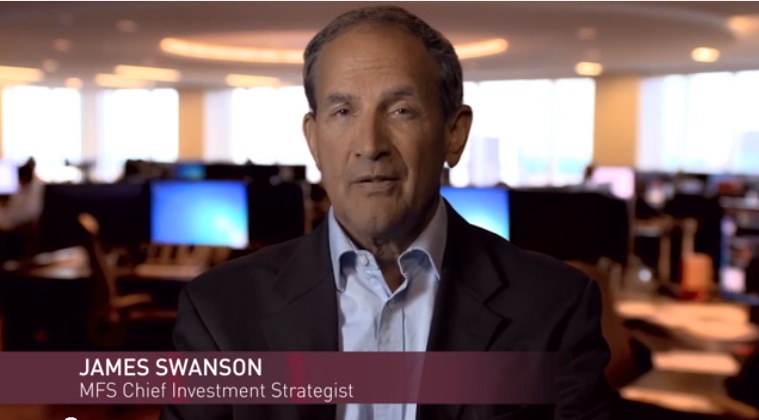A new survey finds there is widespread recognition of the 401(k)’s importance, but many workers are not taking full advantage of its benefits.
The nationwide survey of 1,000 401(k) plan participants, commissioned by Schwab Retirement Plan Services, finds that a 401(k) plan is considered a crucial benefit by an overwhelming majority. When asked which benefits are “must haves” aside from health insurance, nearly nine in ten respondents (87%) say a 401(k) is a “must-have” benefit – more than disability insurance (45%), life insurance (42%), extra vacation days (34%) or the ability to telecommute (15%).
Although survey participants clearly want 401(k) plans and appreciate their role in working toward post-retirement financial security, most are not using professional advice that may help improve outcomes. In fact, respondents say they are much more likely to have someone change the oil in their car (87%) than have someone help them choose their 401(k) investments (24%).
According to the survey, on average participants spend roughly the same amount of time reviewing and choosing investments for their 401(k), a lifetime savings vehicle, as they do investigating cell phones, which are often traded in from year to year. And they spend more than twice as much time researching their cars before buying than they do evaluating their 401(k) options.
“Today, responsibility for managing their own retirement investments rests squarely on workers’ shoulders,” noted Steve Anderson, head of Schwab Retirement Plan Services. In fact, the survey finds that nine in ten participants are relying on themselves for the money needed to live in retirement and a majority are using their 401(k) as their primary or sole source of retirement savings.
“With so much at stake, the industry needs to take a more active role in delivering personalized investment advice to help individuals’ 401(k)s work harder for them,” Anderson added. “One-for-all default investments, such as target date funds or balanced funds, can’t be expected to meet the individual needs of workers. The industry can do better.”
Lost? Ask for Directions
The survey finds many participants are still unsure exactly how their retirement benefits work. Half of those surveyed (50%) say their 401(k) plan investment information is more confusing than their health care benefits information. Roughly one in three (34%) admit they feel a lot of stress when it comes to allocating their 401(k) dollars. More than half (59%) wish it was easier to choose the right 401(k) investments.
Today, many 401(k) plans offer some type of professional, personalized investment advice, which can be vital in helping people take better control of their investments. While many of the participants surveyed believe they would likely benefit from this type of assistance, relatively few are actually taking advantage of this critical resource. Specific findings include:
- Less than one quarter (23%) of those with access to professional 401(k) advice say they have used it.
- Among those not using advice, roughly half (49%) believe they would achieve better investment results if they did so.
- A large majority of participants surveyed (70%) say they would feel extremely or very confident in their ability to make the right investment decisions if they enlisted the help of a financial professional. Only 39 percent feel that same level of confidence when making investment decisions on their own.
“Most people see a doctor when they’re sick or a mechanic when their car isn’t running, so why not seek professional help to manage something as important as their 401(k)?” said Anderson. “In many cases, there is a significant difference between how much people need for a comfortable retirement and what they are actually saving. With all of the information providers have about 401(k) participants – age, salary, account balance, savings rate, and more – why leave them on their own, or lump them into target date funds based only on their age when so much more can be done to personalize their savings plans? We know that professional advice can play an important role in helping people save more to bridge the retirement gap.”
According to the survey, six in ten participants are most likely to seek help with retirement planning once they start to approach retirement age, even though getting help sooner may lead to better outcomes. At Schwab Retirement Plan Services, Inc., participants who used third-party, professional 401(k) advice tended to increase their savings rate, were better diversified and stayed the course in their investing decisions.
Difference-Makers That Drive Outcomes
In addition to using professional investment advice, workers can take other steps to get more out of their 401(k) plans, and many survey participants already are. Some of these positive behaviors include:
- An overwhelming majority (86%) of participants who get matching contributions from their employer say they are contributing at least enough to receive the full company match.
- More than half of survey respondents (57%) have increased their 401(k) contributions in the past two years. Many say they did so because they were concerned about having enough money to retire comfortably.
- While many 401(k) plans allow participants to take loans against their account, most of those surveyed seem to recognize that this is a poor choice, as loans can potentially derail a savings plan for years. According to the survey, three-quarters (76%) of respondents have never taken a 401(k) loan.
“With the 401(k) serving as a primary retirement income source for so many, workers and employers are both clearly focused on improving outcomes,” Anderson noted. “While there is certainly room for improvement, we see more workers developing the discipline to save and employers concentrating on impactful plan features like automatic enrollment, automatic savings increases and personalized advice, which can help drive the outcomes we all seek.”
This online survey of U.S. 401(k) participants was conducted by Koski Research for Schwab Retirement Plan Services. The survey is based on 1,000 interviews. Survey respondents worked for companies with at least 25 employees, were current contributors to their 401(k) plans and were 25-75 years old.










